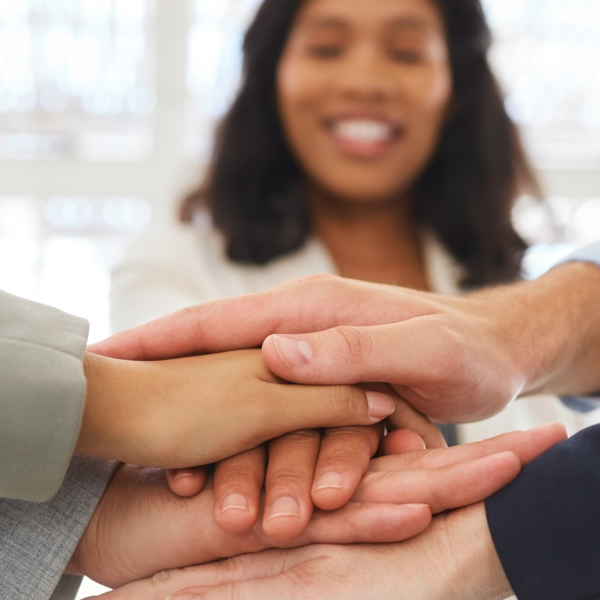Social safety in the construction industry
Joint interest

Social safety in the construction industry
During this Hee, ben jij oké (HBJO / Hey, are you OK) week, we are giving extra attention to the importance of social safety. Many experiences are being shared that show how important it is to also pay attention to social safety in the construction, infra and installation sector. As the campaign website states: ‘It is super important that we look after each other, show understanding towards each other and respect each other. We want to move towards a mindset where ‘Hey, are you OK?’ is the response when something happens.’ An aspiration that is, of course, heartily supported by two prominent HBJO ambassadors: Diana Beuting, chief engineer director at Rijkswaterstaat and Leonie Koops, business line director Infrastructure and Mobility at Witteveen+Bos.
Why is this topic so close to their hearts? Diana Beuting: ‘Diversity is important, I believe our organisation should be a reflection of society. And within that, everyone has the right to feel safe. That is important for the whole sector. Looking at collaborations throughout the chain from client to contractor, we see how important it is to discuss safety in all its dimensions. Given the tight labour market and the amount of work ahead, we really need everyone. If people don't feel safe, they will go elsewhere.'
Equivalence within collaborations
Leonie Koops adds: ‘This is a shared interest. Social safety is not just an internal issue for us, but it is also important in collaborations with other parties. Witteveen+Bos is a project organisation, we work a lot with others and for clients, such as Rijkswaterstaat. Social safety in that kind of relationship, that of client-contractor, is a point of concern. After all, that relationship has a certain hierarchy in it, which sometimes makes it difficult for people to speak out about something they don't like. Unpleasant treatment, undesirable behaviour. Last year, an internal risk inventory on psychosocial working conditions showed that as many as 11 % of respondents had experienced an unpleasant interaction with a client. This ranged from unwanted sexual attention to aggression and intimidation. Such a score does put the subject right at the top of the agenda for me.'


Diana: ‘I find that shocking too. So we have to do something about it. At Rijkswaterstaat we have confidential advisers and regularly hold employee satisfaction surveys. Some scores turn out positive, those colour ‘green’. There it is important to ask questions to the core. Then it sometimes turns out to be a watermelon score: the deeper you ask, the redder the result becomes.'
Leonie: ‘Reports of undesirable behaviour do not always reach me. But if they do, I like to discuss it with the client. My problem is: who can I turn to? Within the project teams themselves, time pressure or hierarchical relationships often do not leave room for it. The colleagues it happens to really want to just get on with their work and interact with their teammates in a professional manner. So by no means all negative interactions are shared. There are situations where action really does need to be taken. For example, I know someone in our organisation who holds her own, but who got into such unpleasant conversations that she no longer wanted to work on that project. She could no longer fulfil her role properly in this relationship, she was not taken seriously. Then I want to talk to the client about that. With the larger clients we work with, including Rijkswaterstaat, there is usually no point of contact for this. I am looking for such a counter.'
Diana responds: ‘Safety in all its dimensions is of course a point of attention in projects. It should be an integral part of cooperation. But it seems essential to me that we find a common entry point for reports of undesirable behaviour and take it out of the project context. We need to find a structural way to discuss this and make sure everyone feels heard. I am thinking of a kind of confidential advisor for external relations. That fits in with Rijkswaterstaat's aim for equality in working with market parties.'
Give each other space
Social safety may not mean the same thing to everyone. How do we deal with that? Diana: 'We do have to keep paying attention to the balance. For social safety also means: where does yours end and someone else's begin? And doesn't someone sometimes play the card of social safety too quickly, when it actually concerns a difficult conversation? But it starts with bringing it up, talking about it.' Leonie: ‘Diversity produces more difference and more difference produces more friction. In a monoculture, certain things may have worked fine before, but society has become more sensitive. We need to give room for different voices and make sure everyone feels comfortable.'
More information?
